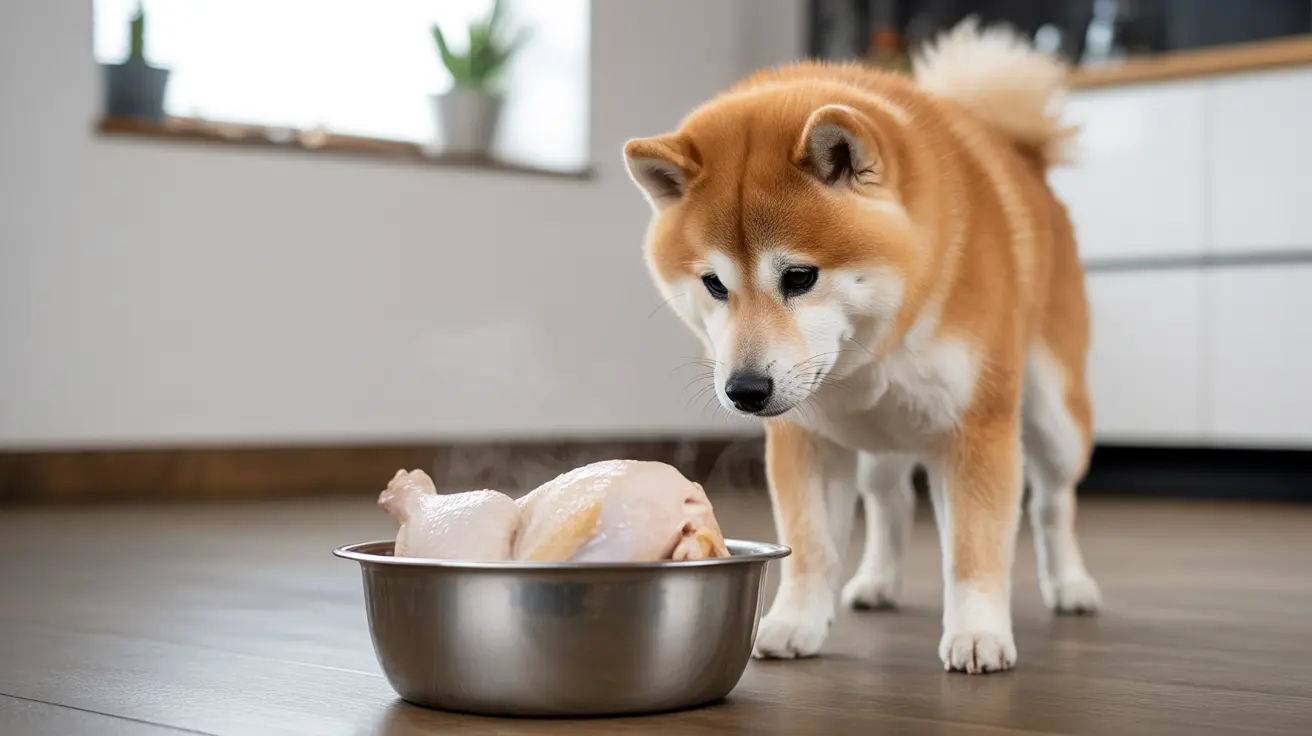Many pet owners wonder about incorporating boiled chicken into their dog's diet. While this lean protein source can be beneficial for dogs, understanding how to properly include it in their meals is crucial for their health and well-being.
In this comprehensive guide, we'll explore the benefits and potential risks of feeding boiled chicken to dogs, along with expert recommendations for safe preparation and serving.
Benefits of Feeding Boiled Chicken to Dogs
Boiled chicken offers several nutritional advantages for dogs when properly prepared and incorporated into a balanced diet:
- High-quality lean protein for muscle maintenance
- Easy digestibility, especially for sensitive stomachs
- Essential amino acids for tissue repair
- Key vitamins including B6 and niacin
- Important minerals such as selenium and phosphorus
Ideal Situations for Feeding Boiled Chicken
Boiled chicken can be particularly beneficial in specific situations:
- During recovery from stomach upset
- As part of a temporary bland diet
- For dogs with food sensitivities
- As a high-value training treat
- To increase palatability of regular meals
Proper Preparation Methods
Safe preparation is essential when feeding boiled chicken to dogs:
- Use skinless, boneless chicken breast
- Thoroughly cook the chicken until no pink remains
- Avoid adding seasonings, oils, or spices
- Let cool completely before serving
- Store properly in sealed containers
Risks and Limitations to Consider
While boiled chicken can be beneficial, there are important considerations:
- Not nutritionally complete on its own
- May lead to deficiencies if fed exclusively
- Potential for bacterial contamination if improperly prepared
- Risk of allergic reactions in some dogs
- Can contribute to obesity if portions aren't controlled
Creating a Balanced Diet with Boiled Chicken
To ensure your dog receives proper nutrition when including boiled chicken in their diet:
- Combine with appropriate vegetables and grains
- Include nutritional supplements as recommended by your vet
- Maintain proper portion control
- Rotate protein sources regularly
- Monitor your dog's weight and health
Frequently Asked Questions
Is boiled chicken good for dogs with sensitive stomachs?
Yes, boiled chicken is often recommended for dogs with sensitive stomachs due to its easy digestibility and low fat content. It's particularly helpful during recovery from gastrointestinal issues when paired with plain white rice.
How do I safely prepare boiled chicken for my dog to avoid health risks?
Safely prepare boiled chicken by using boneless, skinless chicken breast, cooking thoroughly until no pink remains, avoiding all seasonings, and cooling completely before serving. Always store properly and discard any unused portions after 3-4 days.
Can I feed my dog boiled chicken every day, and what are the potential risks?
While boiled chicken can be part of your dog's daily diet, feeding it exclusively is not recommended. This can lead to nutritional deficiencies as chicken alone doesn't provide all necessary nutrients. Always combine with other healthy ingredients and consult your veterinarian for proper portions.
How can I ensure my dog gets a balanced diet if I'm feeding them boiled chicken?
To ensure a balanced diet, combine boiled chicken with other nutritious ingredients like vegetables, healthy grains, and appropriate supplements. Follow your veterinarian's guidelines for portions and consider using a commercial complete diet as the base, with boiled chicken as a healthy addition.
What are the symptoms if my dog is allergic to boiled chicken?
Signs of chicken allergies in dogs may include itching, skin irritation, ear infections, gastrointestinal upset (vomiting or diarrhea), and excessive paw licking. If you notice these symptoms, discontinue chicken and consult your veterinarian.
Final Thoughts
Boiled chicken can be a healthy addition to your dog's diet when properly prepared and balanced with other nutritious ingredients. Always consult with your veterinarian about the right amount to feed your specific dog, and monitor their health when making any dietary changes.






